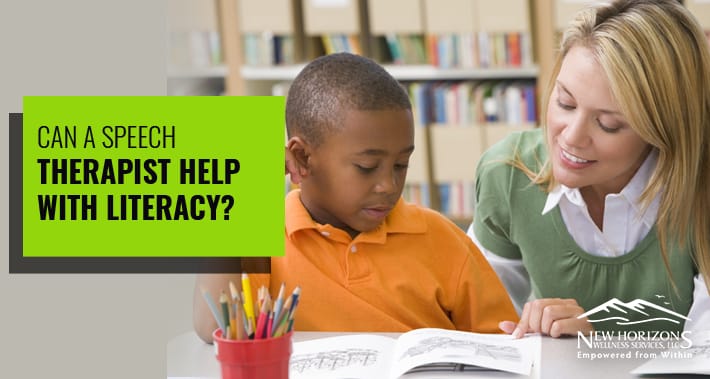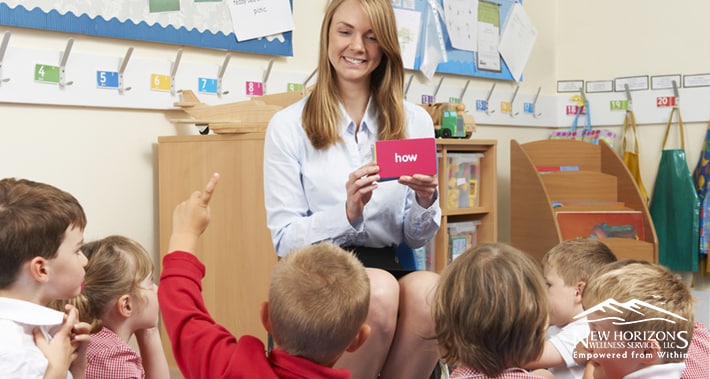
Learning to read and write are very important skills which can hugely impact quality of life.
It can serve as a basis for being able to develop skills to help individuals survive and thrive as they grow older.
There are also impacts on health, wellbeing, and self-esteem.
Children, however, often have difficulty with basic literacy skills.
Today we will look at the ways which speech therapy for children can help develop literacy skills as well.
Keep reading to learn more.
What Is Literacy?
Literacy includes skills related to reading and writing.
In many cases, if a child is having difficulties related to speech they will also have trouble with reading and writing as well.
For other children, their speech may be typical for their age, but they struggle in school with literacy.
Learning to read often involves using techniques such as sounding out letters and words, and this can be difficult for children whose speech is limited.
On the other hand, if your child has a learning or intellectual disability like autism spectrum disorder, ADD/ADHD, , or sensory processing disorder it can present issues with other areas of language as well.
Taking a comprehensive approach to speech therapy, by addressing issues related to reading and writing at the same time may help improve outcomes on all fronts when these issues are concerned.
How Can You Help Improve Your Children’s Literacy?
If your child is struggling with learning to read and write, there are some things you can do to help them develop these important skills.
Let’s have a look at some of these.
1. Talk To Your Kids
One way to help improve literacy in kids is to work on improving their speech and language – and an easy way to do that is to talk to them.
Even when a child is too young to understand what you’re saying – possibly even before they are old enough for issues related to reading and language to be noticeable, talking to your kids is super important.
One way to help develop literacy is to expose your child to language, and talking is an easy way to do this.
Talk through things with them as they play – this can help them recognize how language works.
2. Create Stories With Your Kids
No, we don’t mean you and your kids need to write the next great American novel.
But practicing stringing words together into simple sentences is a great way to practice words.
Writing it out and then re-reading it together will help get them interested, since they will be able to read something they created, and then over time they will start to recognize common words.
3. Read To Your Kids
This is probably one of the most common pieces of advice for developing literacy in children, and for good reason – it works.
While talking to children is important, reading exposes them to ideas and vocabulary which generally won’t come up in regular conversation.
The benefits of reading to your child can go beyond just learning to read, developing an early love of books, and a lifelong passion for reading, though.
Check your local library for lots of great options if you aren’t sure where to start.
4. Have Your Kids Read To You
The best way to learn something is to practice it, and having your child read out loud can help with both literacy and speech skills.
Some children may be nervous about making mistakes or reading too slowly, but practicing in a safe, supportive environment can really help develop these skills, and also build their confidence.
When they make mistakes or stumble with difficult words, having them read it over, sound out the letters or reading it to them, and then having them repeat what you’ve said are all great ways to help build these important skills.
5. Teach Them Phonics
Phonics are the sounds made by specific letters, or combinations of letters.
Although some children may memorize and recognize simple words – dog, cat, toy, etc. in order to learn to read and say more complex words, phonics is the key.
Simply put, phonics is learning the sounds within speech, or what we would sometimes call sounding out words.
Start by teaching the sounds of individual letters, and common letter combinations such as “th” or “sh”.
Children as young as three years old can start learning letters and the sounds associated with them.

How Can A Speech Therapist Help With Literacy?
If your child has difficulty with language and literacy that is making school hard for them, seeing a speech pathologist for help in developing these skills is a great idea.
A comprehensive approach to addressing both literacy and speech issues can include:
- Shared reading, and reading aloud
- Teaching specific approaches to increase phonics and spelling
- Shared writing in which adults write down words and have the children read them back
- Using rhyme to teach phonics
- Use of alphabet displays during therapy, and practicing identification of letters
- Sounding out words
- Exploring the use of AAC where necessary
Just as we don’t learn to speak in a vacuum, we don’t learn reading and writing in a vacuum either – these skills are very much connected and learning them together will help reinforce the other.
Book Your Appointment With New Horizons Wellness Services
Have you noticed your child’s speech and language skills aren’t developing at the same rate as their older siblings did?
Do they get frustrated when trying to read and sound out words, even though you have done everything you can to instill a love of reading and books?
We’re New Horizons Wellness Services and we can help.
Contact us today for more information on how a speech therapist can help your child, or to set up a consultation.
Yours in Health,
New Horizons Wellness Services13333 SW 68th Pkwy,
Tigard, OR 97223
- https://g.page/newhws
New Horizons Wellness Services provides a true multidisciplinary approach to mental & physical health treatments for children, adults and families.
